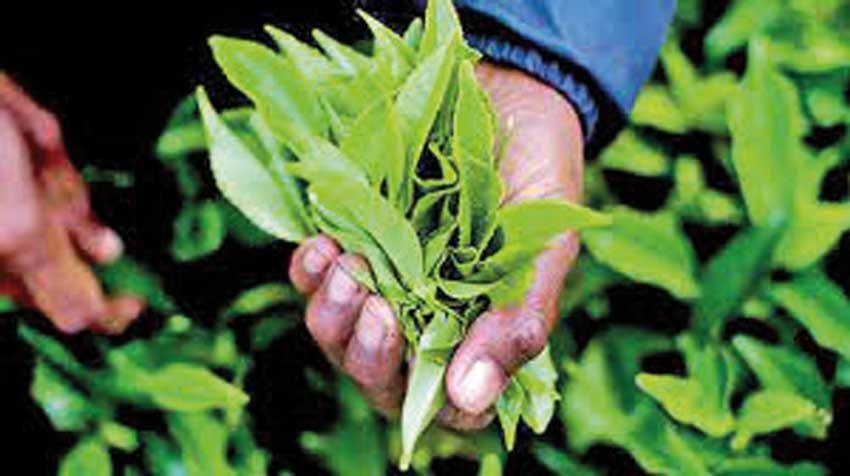
- Russia and Ukraine account for 10% of Lankan tea exports
- All Lankan banks have stopped dealings with Russian banks
- Colombo Tea Auction prices largely unchanged yesterday
- Only one shipping line currently transporting goods to Russia; none to Ukraine
By Nishel Fernando and Shabiya Ali Ahlam
Amid the on-going conflict between Russia and Ukraine where Western nations have imposed sanctions on Russian banks, Ceylon Tea exports to Russia and Ukraine, which account for 10 percent of the country’s tea exports, have come to a grinding halt.
“With several leading Russian banks coming under United States (U.S) and European Union (EU) backed sanctions, we are unable to receive any payments from Russia. Even if they can send money to Colombo, the importer would have to lose 40 percent due to the depreciation of the Ruble. All of these factors are going to impact their purchasing from Sri Lanka.
Although, it is difficult to speculate what is going to happen in the future, everything has come to a grinding halt in terms of exports to Russia and Ukraine,” Colombo Tea Traders Association (CTTA) Chairman Jayantha Karunaratne told Mirror Business yesterday.
Asia Siyaka Commodities PLC, MD/CEO Anil Cooke pointed out that Russia and Ukraine accounted for 10 percent of the country’s tea exports.
In 2021, Russia imported 27.3 million kilos of tea worth US$ 150 million from Sri Lanka while Ukraine imported 4 million kilos of tea worth US$ 21 million.
“They buy the whole spectrum of teas from high-value tea to cheaper varieties. Specially, the lower value teas could have an adverse effect on overall auction prices,” he stressed.
The auction prices at Colombo Tea Auction remained largely unchanged yesterday, although prices have been slipping in some categories.
However, Karunaratne noted that more clarity is needed to comment on the future of Ceylon Tea exports to Russia.
Meanwhile, local banks have halted their dealings with Russian banks altogether, according to industry sources.
“Our banks have stopped their dealings with Russian banks immediately and they are asking us to reduce our exposure to the Russian market,” a top tea exporter said.
However, the Sri Lanka Tea Board (SLTB) has provided an update to local tea exporters with a list of blacklisted Russian banks and Russian banks which are yet to be blacklisted.
Further, only one shipping line is transporting goods from Colombo to Russia while no shipping line operating to Ukraine.
Industry experts view that shipping Ceylon Teas to Russia could become challenging in the coming period with most vessels being non-Russian.
According to Tea Exporters Association (TEA) President Sanjaya Herath, winter purchases by both countries have already reached their borders and the lack of access to the market for summer is not of a major issue since the consumption during that season is usually low.
However, an area of concern going forward is the war surcharge of US$ 1,000 imposed per container shipped to the conflict region. The added charges further escalate the already high logistics rates that are a result of the Covid-19 pandemic.
Herath said the continuity of the surcharge would make shipment to the conflict region expensive, which would hinder exports of Ceylon Tea.
Shipping giant Maersk announced yesterday that it is considering suspending all deliveries to and from Russia, a move other shipping lines could follow suit to showcase their sentiments against the Ukraine invasion.
Meanwhile, Karunaratne highlighted that Ceylon Tea exporters are also struggling to power their generators due to the on-going diesel shortage on top of the implications from the Russia-Ukraine crisis.
“With the diesel shortage, we fear our factories will be forced to stop manufacturing if we run out of diesel to power our generators,” he added.
In January, Ceylon Tea production was down by 0.36 million kilos to 22.82 million kilos from a year ago. Similarly, tea exports fell by 1.44 million kilos to 19.38 million kilos in the month compared to a year ago.
Further, Russia was the second largest buyer of Ceylon Tea in January. Tea exports to Russia increased to 2.56 million kilos from 2.46 million kilos a year ago.
Russia mainly purchased tea in bulk, which accounted for roughly 2.1 million kilos of overall Ceylon Tea purchases in the month. In addition, Russia also purchased 332,389 kilos of packeted tea, 66,985 kilos in tea bags and 58,646 kilos of green tea in the month.
In January, Ukraine’s Ceylon Tea imports plummeted to 280,804 kilos from 455,386 kilos a year ago.
Meanwhile, tea planters pointed out any reduction in shipments will impact all segments of the tea industry and the planters too will feel the pinch.
Speaking to Mirror Business, Planters’ Association spokesperson Roshan Rajadurai shared that the block to the two markets could lead to inconveniences and will add to the overall sales cost. This in turn will trim earnings, he said.
“Ceylon Tea not having access to Russia and Ukraine will not lead to an oversupply to the local market. We are confident our teas will be absorbed by other markets. However, this might be done at a higher cost which will eat into our revenues,” said Rajadurai.
